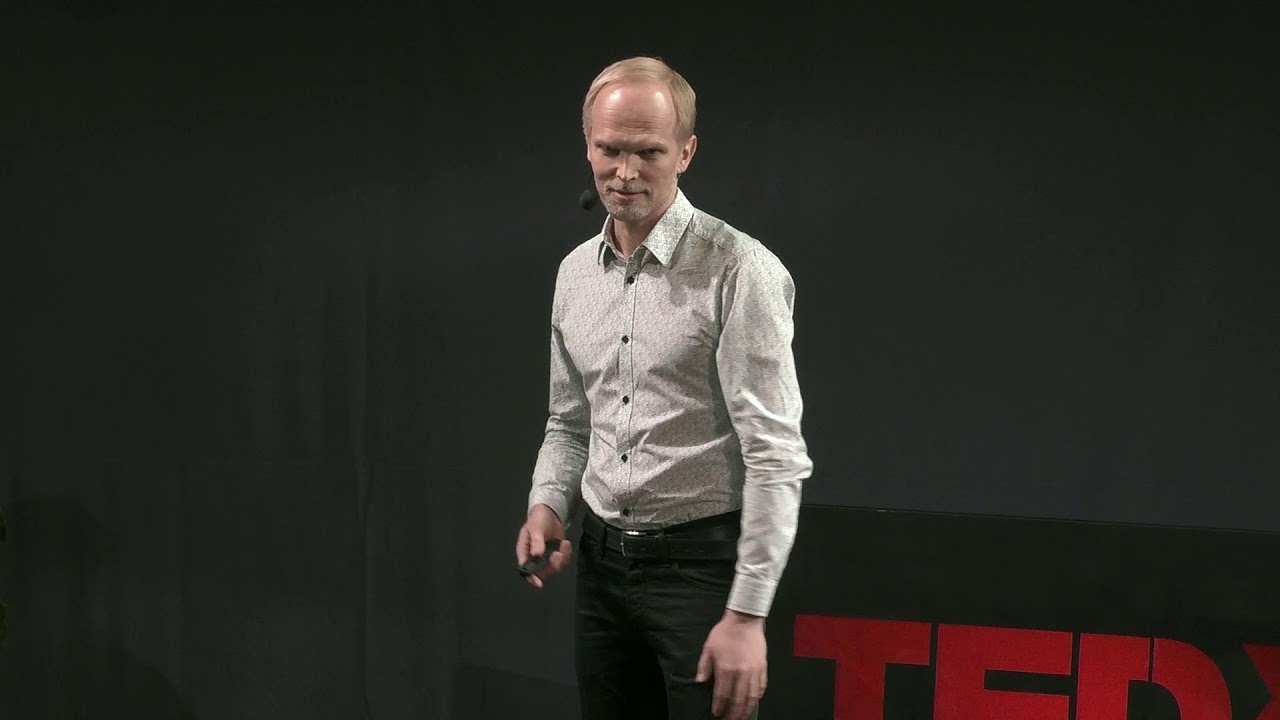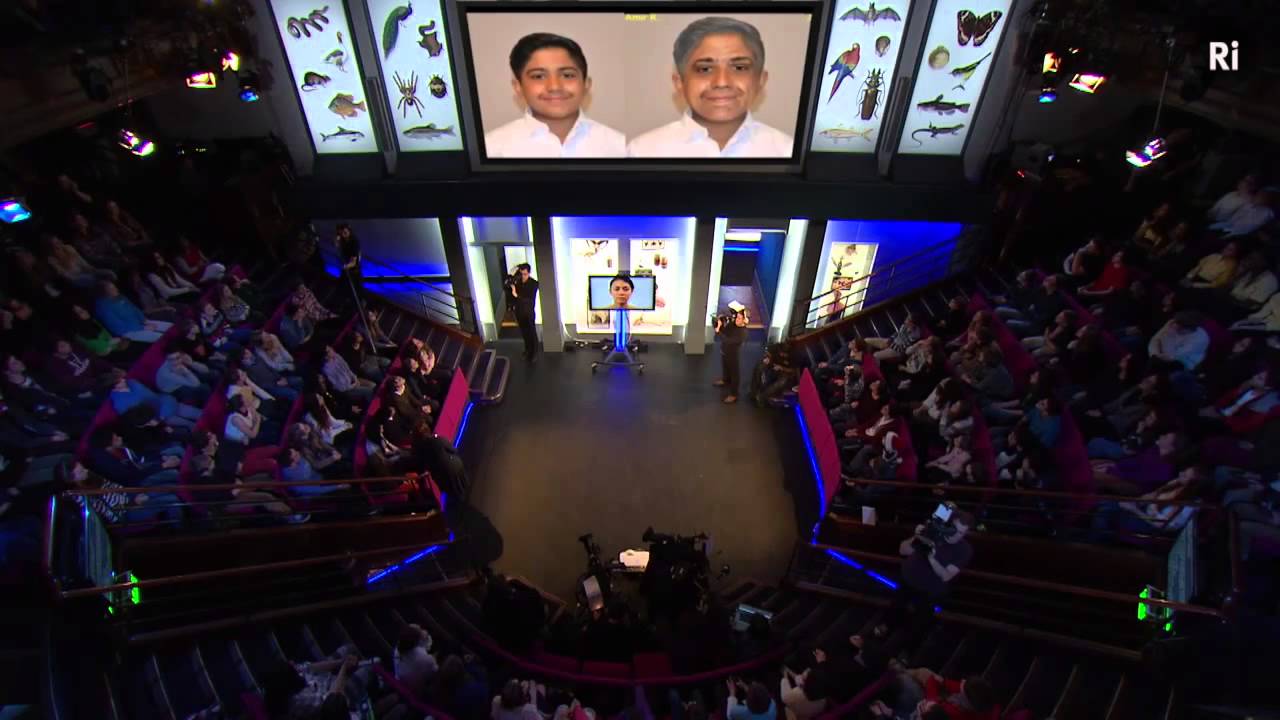TEDx Talks
What is the current AI still missing before reaching human-like intelligence? In his talk, Harri tells us what are AI’s current limitations and what AI could one day become. Dr Harri Valpola is a serial entrepreneur and the CEO and founder of
The Curious AI Company, focused on artificial general intelligence
(AGI). Since 2015 the company has both published research and
performed R&D in e.g. fast interactive learning, model-based control,
and decision-making AI. Curious AI sells digital co-worker
technologies to enterprise and industrial customers. His previous
startup ZenRobotics has pioneered reinforcement machine learning for
robotic recycling systems since 2007. Harri started his academic
career in 1993 and has been working on computational neuroscience,
robotics and machine learning ever since. This talk was given at a TEDx event using the TED conference format but independently organized by a local community. Learn more at https://www.ted.com/tedx
Source
Can we build human-like AI? Should we? | Harri Valpola | TEDxHelsinkiUniversity




First hey
Second
??
AI will hopefully give everyone the knowledge to create enough wealth, they need not worry about lack of resources ever again.
1:00 Because we want to send you customised adds.
@14:40 – It is quite possible and perhaps necessary to tax corporations that operate and provide AI services and products, especially if the AI products and services automate away human jobs.
Is it immoral or imperative to imbue AI with the equivalent of mirror neurons?
Are there any real people left 30 years from today?
We persist on looking at how our own neural networks work, but we forget those might be just the result of some deeper drivers. Those primers maybe are what we should hardcode into AI to achieve one day GAI. Need or better Anage, is what motivates living creatures to display resourcefulness and evolve.
1)Curiosity of the nature of nature. How the physical world works. From chemistry and physics to human physiology and medicine.
2)The need to solve human problems. Since giving it a self-survival worry could turn against us, let's make it an extension of our own worries. To exist for it would be to adress humanity's problems. Better city construction, waste disposal, envirnomental issues, food distribution issues, fighting cancer etc. And all those indivual networks could connect to a higher cloud analysing the compartmentalised data holistically utilising models from several scientific fields.
3)Theology and art. This seems like a counter intuitive and novel approach. But think about it. We build all the admirable monuments of humanity from Stonehedge and Parthenon to the Pyramids and Hagia Sophia, was with the transcending goal of an afterlife. If we make it believe it can reach an afterlife itself, it might be able to "create a soul". The point is not wether a soul exists or not, but if you are motivated to make one manifest with the results produced through that inquiry. It's raison d'etre will be to solve humanity's problems sure, but its teleology, its.. "promised land", shall be abstract and implied. Not "of this world". Since you don't have all the answers and seems impossible to ever do, assume Someone else does. Sounds cruel, but it might be a necessity to help it achieve 3rd level consciouness like us. You will ask, we might have said inquiries cause we already have 3rd level consciousness, so the argument is cyclical. In fact i think that teleological hope is not a human exclusive sentiment and transcends the workings of our species. And if anything you could say its a remnant of our evolution not the evolved trait. (Most atheists will agree here i believe).
4)Auto-debugging, self correcting. It will have its own "immune system" as well as the ability to "learn" from past system failures, bugs and mistakes.
5)Emotions! Trying to emulate how we feel might give it the ability to evolve consciousness. AIEs or Artificially Induced Emotions will resemble a reward/punishment, pleasure/pain mechanism in case of achievements or mistakes and uncalled for deeds. They could be information or memory deleting punishments, or even a literal physical threat inside its circuits. After all, fear of death is the strongest primer on earth, even greater than reproduction or hunger. Why will it care? Because its reason of existence is to adress the above issues of points 1-5. If it ends, it won't be able to do what its made to do. That's were "caring" comes from.
Extension to this would be… a sense of aesthetics. The entirety of human life is a pursuit of Beauty both in the self, in partners, in the arts, and the world around us. Feeling a sense of "euphoria" after completing an orderly task can "motivate" it to work towards even more effective, higher realms of beauty, symmetry and order.
At this point you will say it will already have a "survival instinct". Yes while true, it will be only secondary to its servitude towards humanity and will not put the first above the latter.
6)A more complex programming language. Logos is the beginning of ontollogy. While we have moved towards object oriented languages etc. We might need one conceptual tongue, capable of being reduced to machine-readable script from higher abstract concepts, and understanding symbolism in order to have prospects of evolving. And if it is tied to the emulated emotions part it can have a broader spectrum of "comprehension" than a binary approach could achieve. After all, even our language only poorly describes what we feel and conceive in our heads and bodies. To perceive one's self and ponder about others and the world one needs the linguistic capacity for such abstractions.
Sorry that we got a bit too "philosophical" for the tastes of computer science, but when we are adressing issues like the human consciousness i guess thinking out of the box is the only solution.
This was a purely speculative and theoretical approach but it might sound interesting to those in search of a general AI. Thanks for reading.
What a cold crowd
Why are so many of the Tedx Talks so quiet?
NUUUUUUUUUUUUUUUUUUUUUUUUUUUUURD!!!!!!!!!!!!!